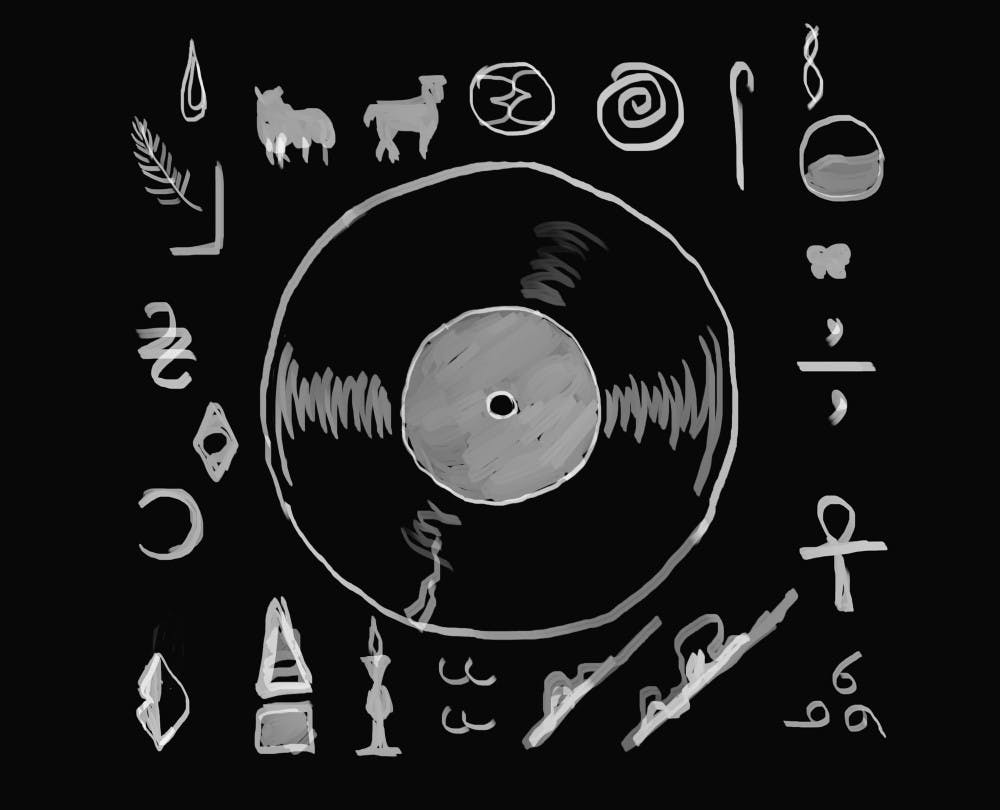Cracks in the stereo. Loud blaring. Sometimes listening to music is not a perfect experience. Listen to an old record and it's riddled with the remnants of mediocre audio equipment, weak masterings, and the occasional mic crack. There's a reason so much music from the 60s has been remastered. The quality in which these albums were recorded was under low–quality standards. Now, with the access to amazing studio equipment that the majority of artists have, they are able to remaster songs to make them sound perfect. Error–free music.
That is what we all want, no? To be able to listen to the highest quality of music without any mistakes. To have clarity in what we listen to. If this is the case, why is it that so many songs today continue to be riddled with these apparent ‘errors’ throughout albums? I have recently listened to Bon Iver’s 22, A Million, and although I consider it to be one of the best albums of last year, I cannot help but be startled by the cracks and inconsistencies throughout the record. On his track “8 (Circle),” in the beginning of the third minute of the song right before the horn section kicks in, the choir glitches. It's as if you're listening to a track through a poor Bluetooth connection. The same instances of muffled errors are found on “22 (OVER SOON)” and “33 'GOD.”’ For an artist that is often considered a perfectionist by his peers, it is strange to see these instances in his music, unless these were there for a reason.
Bon Iver is not alone in this theme of errors in music. XXXTentacion’s “Look At Me!” starts with a heavily–based mid–looped beat, JPEGMAFIA’s “Baby I’m Bleeding” keeps cutting back and forth in the beginning of the song in between different tempos (to the point in which the artist screams in anger), and Kanye’s Yeezus makes you feel uncomfortable with the awkward and inconsistent beat changes. With these errors so apparent in music today, it is clear there is a message being put forth by these artists in terms of what they want you to get from their music. Through this form of purposeful errors, they make music that sounds more ‘real’ than the computer–produced music of today. By adding in their own errors, it breaks through the reality of unnaturally clear music to which we listen. It creates a moment in which we are thrown off, in which we are forced to pay attention because it makes us uncomfortable. Although this may not be something we enjoy as listeners, it gets our attention. For some artists, that's all they need before a strong remark in a song, whether through words or instruments. Through this, we are able to take a step back from the repetitiveness and just feel for a moment something jarring, whether we enjoy it or not.
Music is never perfect. Even a song that has gone through tens of hours of production will have some sort of criticism, and the critic may even have a point. It is not the artist's job to make extremely high quality tunes, nor is it their job to make something melodically consistent. The artist has no job; instead, what they have are goals, one of which is to get you, the listener, to hear their message. By creating purposeful mistakes, a paradox if I’ve ever known one, artists make a statement. This statement is not a strong one, but it breaks the monotony of normal music, and for that it can be appreciated.

